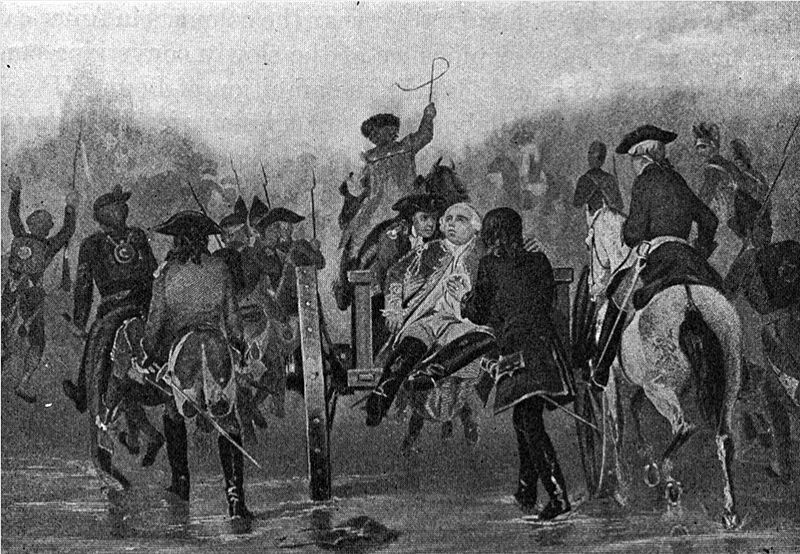Prologue: Not a European War
Prologue:
Not a European War.
9th of July, 1755
---
" But [General Braddock] had too much self-confidence, too high an opinion of the validity of regular troops, and too mean a one of both Americans and Indians."
-Benjamin Franklin, "A Vain Remonstrance with General Braddock"*

Not a European War.
9th of July, 1755
---
" But [General Braddock] had too much self-confidence, too high an opinion of the validity of regular troops, and too mean a one of both Americans and Indians."
-Benjamin Franklin, "A Vain Remonstrance with General Braddock"*

The almost fifty year-old diplomat was speaking to General Braddock. The latter, a rather smart dashing man, was explaining his plans for his battalion. Gesticulating some, he told with grandeur the plans he had: first would come Fort Duquesne, then Niagara, then finally Frontenac. There would be, he evidently believed, be either little resistance or not enough to deal with his over thousand-troop expedition. The diplomat, Benjamin Franklin, was hesitant. “To ask for pardon, General, I do not believe that this is the most ideal of positions for our armies - as great as they are,” Franklin tried to explain. He coughed awkwardly, before continuing: “You see, I have read countless times of similar encounters, be it Frenchmen or colonists, and what Indians have done is things of trickery; they could, for example, pick off soldiers one-by-one.” The response of the General was a nonchalant laugh. He pats the back of Franklin: “Aye, these savages may, indeed, be a formidable enemy to your raw American militia, but upon the king’s regular and disciplined troops, sir, it is impossible they should make any impression.” He laughed again, and Franklin remained silent. He opened his mouth to respond, before shutting it and nodding, giving a feeble “Yes, General” before retreating back into line.
Fortunately, Franklin’s predictions were wrong.
Unfortunately, the French-and-Indian forces were somehow cleverer than that. For a detachment that had moved ahead, headed by Thomas Gage, had entered fire with French and Native forces. Braddock’s men, hearing sounds of conflict, hastened their march. Gage’s detachment retreated into Braddock’s forces, and both fell into chaos. Despite attempts to order the chaos, the volleys from within the wilderness left nobody safe. If one were to have looked at the combat, they would have seen a flurry of soldiers, confused and disorderly; they would have seen generals and higher-ups desperate in their attempts to rally troops and follow orders. They would have seen General Braddock get shot and still giving orders while wounded; they would have seen generals screaming these orders before themselves getting shot, and the third of the Braddock's troops remaining retreating. And, if they looked long enough, they would have seen George Washington's body among those littered across the wilderness, and if they stayed for longer they might even have seen him being scalped.

Thus was Braddock's defeat.
Thus was Washington's death.
Thus was the moment that history changed.
Thus was Washington's death.
Thus was the moment that history changed.
---
*Actual quote by Benjamin Franklin. Most events recorded here are approximations of the actual Braddock's Defeat. The quotes won't always be real, so I'll note when they are real.
---
Alright, I've had some iteration of this idea existing for a fair while now, but it took until a couple days back for me to get inspired enough to write it out. This is my first non-graphics based timeline (to some degree), and as such it's probably not up to par with most other timelines on here. I do hope you enjoy, though!*Actual quote by Benjamin Franklin. Most events recorded here are approximations of the actual Braddock's Defeat. The quotes won't always be real, so I'll note when they are real.
---
-Bennett



